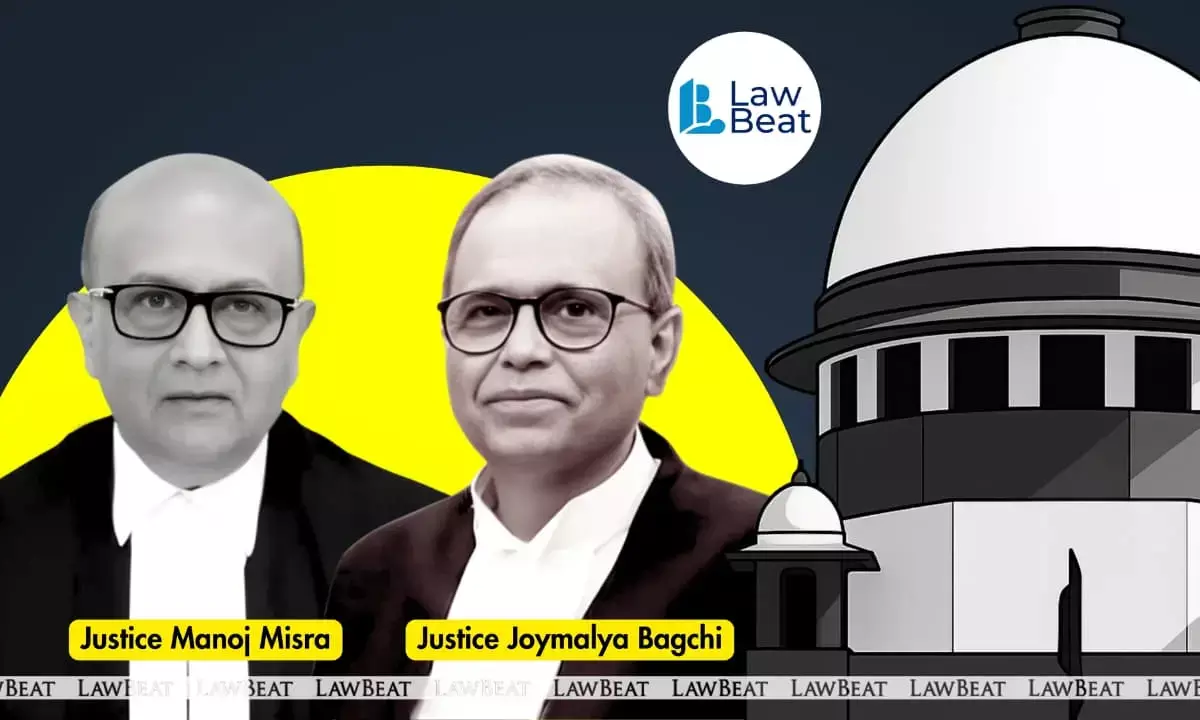High Courts Cannot Use Article 226 to Interfere With Civil Court Orders: Supreme Court

Supreme Court restores eviction decree, clarifies High Court's Article 227 power over civil court orders
The Supreme Court recently restored an eviction decree set aside by the Bombay High Court, holding that judicial orders of civil courts cannot be challenged through writ petitions under Article 226 and may be examined only within the narrow supervisory limits of Article 227.
The bench of Justices Manoj Misra and Joymalya Bagchi said the High Court exceeded this jurisdiction when it ordered a retrial in a rent dispute from Nagpur.
Landlord Shri Digant filed a possession suit in 2014 under the Maharashtra Rent Control Act. The defendants repeatedly failed to appear, resulting in ex parte proceedings that were later recalled. During the trial, their advocate filed a “no-instructions” pursis in November 2014 along with a notice he claimed to have sent to the tenants. The pursis did not seek withdrawal of his Vakalatnama, nor did the court grant such withdrawal. The advocate even participated in arguments the same day. The suit continued for over three months, during which the tenants made no attempt to either contact the court, appoint a new lawyer, or contest the case. The trial court ultimately decreed the suit in March 2015.
The tenants then appealed under Section 34 of the Rent Act, arguing that the trial court should have issued notice to them after the no-instructions pursis. The appellate court rejected this, pointing out that the tenants were evasive about whether they received their lawyer’s notice, had engaged in earlier delay tactics, and could not claim prejudice when the Vakalatnama had not been withdrawn in the first place. It upheld the decree.
The tenants thereafter approached the High Court under Articles 226/227. The High Court accepted their plea that the trial court failed to comply with procedural rules relating to withdrawal of appearance and remanded the matter for a fresh trial.
The landlord challenged this order before the Supreme Court.
Citing the three-judge bench judgment in Radhey Shyam v. Chhabi Nath, the Supreme Court reiterated that judicial orders of civil courts are not amenable to a writ of certiorari under Article 226, and may be examined by High Courts only under Article 227, that too sparingly and only to correct jurisdictional errors or grave injustice.
The bench observed that the appellate court had already undertaken a detailed analysis of the tenants’ conduct, including their earlier non-appearance, their failure to deny receipt of their advocate’s notice, and their refusal to answer a direct query on this point. The appellate court’s finding that the tenants could not take advantage of their own neglect was a “plausible view” based on the record, the Supreme Court said.
Court held that the High Court’s entire approach was “misconceived” because the pursis had not sought withdrawal of Vakalatnama and the trial court had never permitted such withdrawal.
"Hence, in our view, the appellate court’s order was not amenable to interference in exercise of jurisdiction under Articles 226/227 of the Constitution. The High Court clearly exceeded its jurisdiction under Article 227 of the Constitution in interfering with a well reasoned order of the appellate court,'' the bench said.
Since the High Court did not consider any other point, the top court deemed it appropriate to allow the appeal and restored the order of the trial court as affirmed by the appellate court.
Court allowed the appeal and set aside the order passed by the High Court on January 30, 2023.
Case Title: Shri Digant Vs M/s P D T Trading Co & Ors
Judgment Date: November 18, 2025
Bench: Justices Manoj Misra and Joymalya Bagchi
